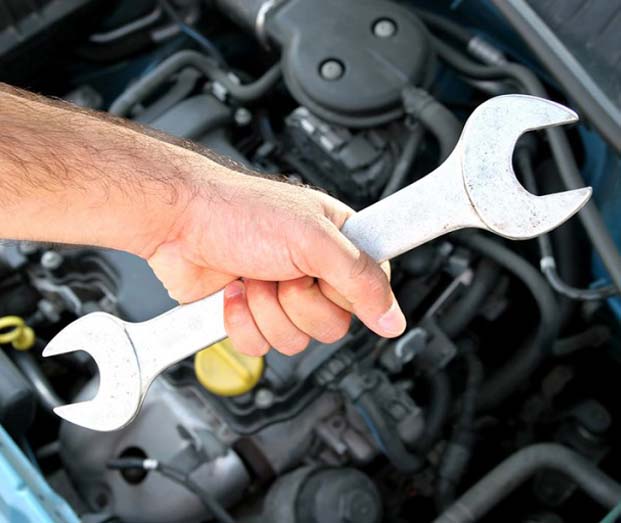All Categories
Featured
Table of Contents
Maintaining an automobile goes past periodic fixings; it calls for a dedication to routine preventative maintenance. This proactive strategy can dramatically prolong the lifespan of your automobile, enhance performance, and make sure safety when traveling. Right here are some vital preventative maintenance solutions every vehicle proprietor must schedule frequently.
![]()
Coolant: Avoids the engine from overheating and protects versus rust. Transmission Fluid: Vital for smooth moving and total transmission wellness. Brake Liquid: Necessary for efficient stopping performance. Power Guiding Fluid: Aids in steering responsiveness. Refer to your vehicle's proprietor handbook for specific replacement intervals, and don't wait to ask a mechanic to do a fluid check during routine service check outs.

1. Routine Oil Changes.
Oil adjustments are basic to car health and wellness. Depending on your car and the type of oil used, it's commonly recommended to change your oil every 5,000 to 7,500 miles.2. Tire Maintenance.
Tires are a critical part of vehicle safety and performance. Routine upkeep, including tire rotations, balancing, and pressure checks, can improve tire longevity and improve gas effectiveness. Tire turnings must be executed every 5,000 to 7,500 miles to make sure also put on. Additionally, inspecting tire pressure monthly is essential; under-inflated tires can result in poor handling and increased gas usage. Ultimately, don't forget to inspect the tread depth on a regular basis to guarantee sufficient grip.3. Brake System Checks.
Brakes are necessary for risk-free driving, and normal assessments can prevent prospective failings. Car proprietors need to set up brake checks at the very least yearly, or extra often if they observe any kind of indicators of wear, such as squeaking or grinding sounds. A qualified service technician can analyze the brake pads, blades, and fluid degrees to ensure whatever is functioning appropriately. Keeping your braking system in top form is vital for your safety and can save you from costly repair work down the line.4. Liquids Evaluation and Substitute.
Fluids play an important role in your lorry's procedure. Regularly inspecting and replacing necessary fluids can aid maintain performance and protect against break downs. Key fluids to check include:Coolant: Avoids the engine from overheating and protects versus rust. Transmission Fluid: Vital for smooth moving and total transmission wellness. Brake Liquid: Necessary for efficient stopping performance. Power Guiding Fluid: Aids in steering responsiveness. Refer to your vehicle's proprietor handbook for specific replacement intervals, and don't wait to ask a mechanic to do a fluid check during routine service check outs.
5. Battery Upkeep.
A well-functioning battery is critical for starting your automobile and powering its electrical systems. Normal battery checks, consisting of terminal inspections for deterioration and examining the cost, can stop unexpected failings.6. Air Filter Substitute.
The engine and cabin air filters are often ignored yet play significant roles in automobile efficiency. A clean cabin air filter improves air top quality inside the car, adding to a much healthier driving atmosphere.7. Wiper Blade Substitute.
Regularly inspect your wiper blades and change them if they leave streaks or struggle to remove the windshield. Maintaining your windshield washer liquid topped off additionally contributes to maintaining clear exposure.8. Comprehensive Inspections.
Lastly, think about arranging an extensive car evaluation a minimum of yearly. An expert specialist can thoroughly analyze various components, including belts, tubes, and the exhaust system. This aggressive strategy can determine potential concerns prior to they rise, ensuring that your vehicle stays reliable and risk-free.Final thought.
Regular preventative upkeep is crucial for automobile owners who want to prolong the life of their automobiles and guarantee a safe driving experience. By remaining on top of oil changes, tire upkeep, brake checks, liquid inspections, battery treatment, air filter replacements, wiper blade updates, and extensive assessments, you can keep your vehicle running smoothly for years to come.Table of Contents
Latest Posts
Change Your Washroom Without the Anxiety
Published May 03, 25
1 min read
Experience You Can Count On with Bathroom Fitter Metro Detroit
Published May 03, 25
1 min read
Need a Mechanic Shop Locally? Choose Car-X St. Louis for Professional Service
Published May 03, 25
1 min read
More
Latest Posts
Change Your Washroom Without the Anxiety
Published May 03, 25
1 min read
Experience You Can Count On with Bathroom Fitter Metro Detroit
Published May 03, 25
1 min read
Need a Mechanic Shop Locally? Choose Car-X St. Louis for Professional Service
Published May 03, 25
1 min read